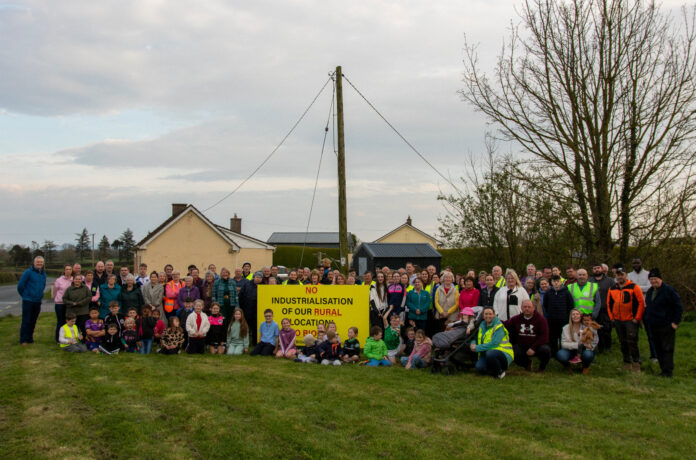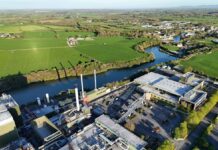
NEARLY 100 objections have been lodged against plans to build a biomethane plant in Bruree, County Limerick.
CycleØ Limited IE – which builds, owns, and operates biomethane plants across Europe – have filed planning requests with Limerick City and County Council for a large-scale plant at Cappanihane, Bruree near Morrissey’s Cross.
The plant would be one of four the company hopes to build in Ireland.
The development is described as an “anaerobic digestion facility”, and would see the conversion of feedstock by micro-organisms in the absence of oxygen into biogas and digestate.
As of last week, 86 complaints were submitted to Limerick City and County Council over the proposed location of the plant.
In an effort to express their unhappiness, local residents have established the Limerick Biogas Concern Group.
The group currently has over 180 members from the local and surrounding areas.
A spokesperson for the group said that “while we recognise the benefits of biogas as a renewable energy source, we have significant concerns regarding the location’s suitability”.
The group also expressed concerns over “the plant’s demands on local electricity and water resources, and possible contamination threats to drinking water and surrounding lands”.
Inadequate transport infrastructure and the capacity of local L-roads, proximity to family homes, and potential risks to wildlife and water ecosystems are also listed in the group’s concerns.
Among the submissions made to the Council, ahead of the submission deadline on April 27, one individual cited health and safety concerns for their young grandchildren who are all under the age 10.
The objector listed a number of pollutants which they allege would be in the air if the planning permission for the plant is approved, including ammonia and hydrogen sulphide.
“These substances are dangerous – especially to children whose lungs are still developing. I cannot stand by a facility that emits these pollutants placed in close proximity to where my grandchildren live, play, and attend school,” they said.
Noise pollution and road safety were also highlighted, with concerns over the potential increase in trucks carrying waste and biomass on narrow rural roads in the area.
A perceived lack of information and adequate notice was another reason listed in the submissions objecting the proposal, with some local residents citing ignored requests for public meetings and unanswered questions.
However, speaking to the Limerick Post, a spokesperson for CycleØ said: “We held a public community engagement event at the Charleville Court Hotel on 12th December 2024.”
“We welcomed many local residents at the event and in several individual conversations held since, we have answered questions including those posed by members of the concern group”, the spokesperson said.
The biomethane provider said that all feedback received at the event was considered and amendments were included in their plans, which were shared via email with anyone who asked to be updated following the December event.
Responding to the environmental concerns raised by residents, CycleØ explained that the Environmental Impact Assessment Report submitted as part of their planning application shows no negative impact on local wildlife or ecosystems.
They also said that mitigating factors will be employed to manage any impact of traffic movements, noise, and odours.
“The plant will be self-sufficient in electricity and water, with built-in rainwater recovery and self-contained water and run-off protection,” CycleØ added.
The four CycleØ Irish plants will produce a combined output of 160GWh, enough to heat around 12,000 Irish homes and contribute to the National Biomethane Strategy of producing 5.7TWh of indigenous biomethane by 2030”, the spokesperson added.
A €100m investment was announced by the company last October identifying four sites of interest in Limerick, Kildare, Galway and Cavan.
The plants will produce a combined total output of 160GWh, enough to heat 12,000 Irish homes and contribute to the National Biomethane Strategy producing 5.7TWh of indigenous biomethane by 2030.
Residents, however, say they will remain firm on their opposition to the proposed plant’s location in Limerick, with one resident concluding in their submission: “Cappanihane is not just land on a map – it is our home, our heritage, and our future. It deserves protection, not industrialisation.”










